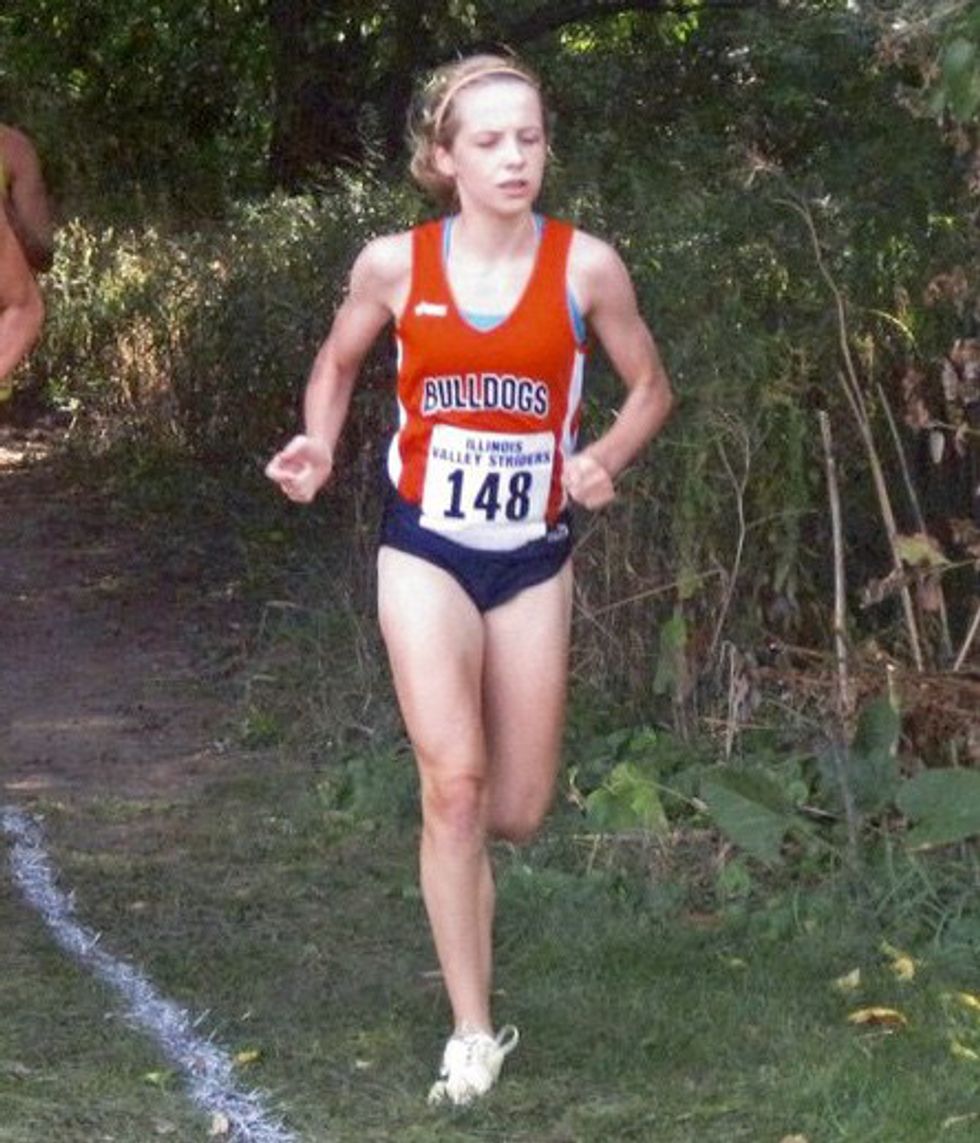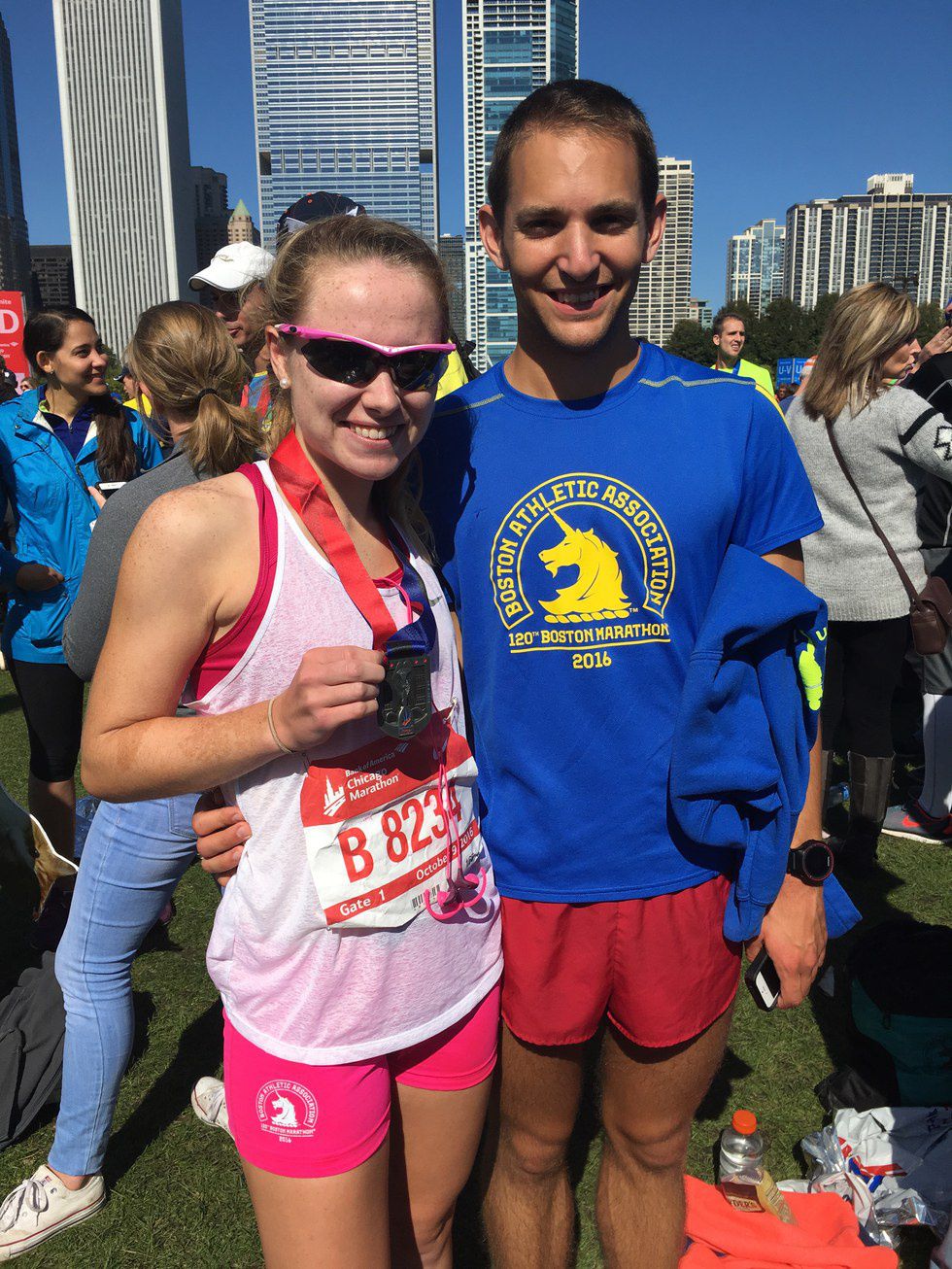In high school, running was my obsession. I craved every mile and the euphoria that came with it. There was no such thing as too many miles, and I continued to pound the pavement day after day in hopes of finally catching that dream that I only now realize was a mere illusion of my imagination.
I fell in love with the sport in sixth grade when I joined the track team. The first time I ran an 800 meter time trial around the track, I knew this was a sport I wanted to do for the rest of my life.
Running in junior high was fun. I loved to work hard in practice, race well, and celebrate with my teammates by going out for pizza after meets.
But in high school, I decided to take it to a whole new level. My goal was to go from a local honorable mention runner to a state-level standout and get picked up by a Division I university, where I could step up to the level of the glamorous All-American runners who were featured in “Runner’s World.” My belief was that if I poured my heart and soul into it, I could make my dream come true. What I didn’t realize was that by pouring my heart and soul into it, I’d drain myself of life.
The message coming to me from all directions was that in order to be a successful high school runner, I had to be as light as possible. It made sense: when you have less to carry, you can go faster using the same amount of energy. Of course, it works the other way, too: the more you run, the more calories you burn and the thinner you’ll be.
My coached weighed me and my teammates four times per year, and I thought this was a great way to track my goals. In fact, I thought it was so great that I started weighing myself every day.
As I started cutting out entire food groups and snacking on dry, tasteless cereal, I swore I was doing it to be a better runner. And at first, I was.
But at some point during my later high school years, I shifted from losing weight to be a better runner to running to lose weight. The team weigh-in days became a source of dread weeks before they even happened. I wasn’t meeting my weigh-in goals anymore, and I’m not the type of girl who lets goals go unmet without a fight.
Of course, I also wasn’t meeting my running goals, but that seemed less fixable than my weight goals. If I could just get my weight back under control, I could go back to being a fast runner.
And so began the cycle of trying to eat less and run more, then finding myself too hungry to control my eating and too exhausted to run another step.
The more I spun on this cycle, the more criticism I faced:
“You need to lose weight.”
“That number on the scale is too big.”
“Do you just not care anymore?”
I felt like I was spinning out of control for almost two years, and then suddenly it was all so clear to me. I was done. After my senior year of cross country, I stopped running and told myself I’d never do it again.
I couldn’t see running through the same eyes I did as a naive sixth grader; I only saw its dark, twisted connection to weight. I saw it as the deceptive tool advertising something that could never really be achieved, at least not without sacrificing your livelihood.
A year and a half later, despite my dramatic and emotional claims to be done with running forever, I poked out of my shell and went for a short run. I felt so out of shape; my breathing was heavy, and my legs were sore at a slow jog. But for the first time in four years, I felt running bring me to life rather than suck the life out of me.
Those first months back were entirely recreational; I ran just for the joy of running without a care in the world for who was watching or how fast my times were. As I got in better shape, I signed up and raced my first half marathon in my hometown. I wasn’t even close to the level of fitness I had in high school, but as I ran past my old team on the side of the course and remembered everything I had gone through, I felt more confident than I ever had before.
Now I run marathons, and I’m in far better shape than I was in high school. But I run for different reasons now: the exhilarating feeling of my muscles burning and my heart beating fast as I push myself to new limits, the sense of calmness it brings me as the wind blows through my hair and makes me forget about my troubles, the excitement I feel at the starting line of a race, the inspiration I can be to others through my running, the satisfaction of knowing that I’m doing something healthy for my body, and mostly just the joy I get from putting one foot in front of the other.
I may never have a thigh gap, and I may never again fit into the double zero jeans I wore in high school. But I’m healthy; I’m strong; I’m fit; I’m happy. Those things matter to me so much more now.
Being at a healthy, attractive weight is one of the side effects that comes with running, but it’s not why I do it anymore. Running just to be thin is a dangerous road to burnout, failure, and disappointment. As you fixate on the scale, you lose sight of why you started doing it in the first place. Never forget the little girl who fell in love with the sport.
Whether it’s competitive running or recreational exercise, too many young people (especially young women) are motivated by the illusion that exercise will make them thin and gorgeous. They fight and sweat for an ideal that often isn’t even healthy to achieve. When you run to be fit and healthy, you shift your entire view of running from something negative to something positive. And it should be a positive force in your life because when you do it for the right reasons, running can change your body, mind, and soul for the better.











































